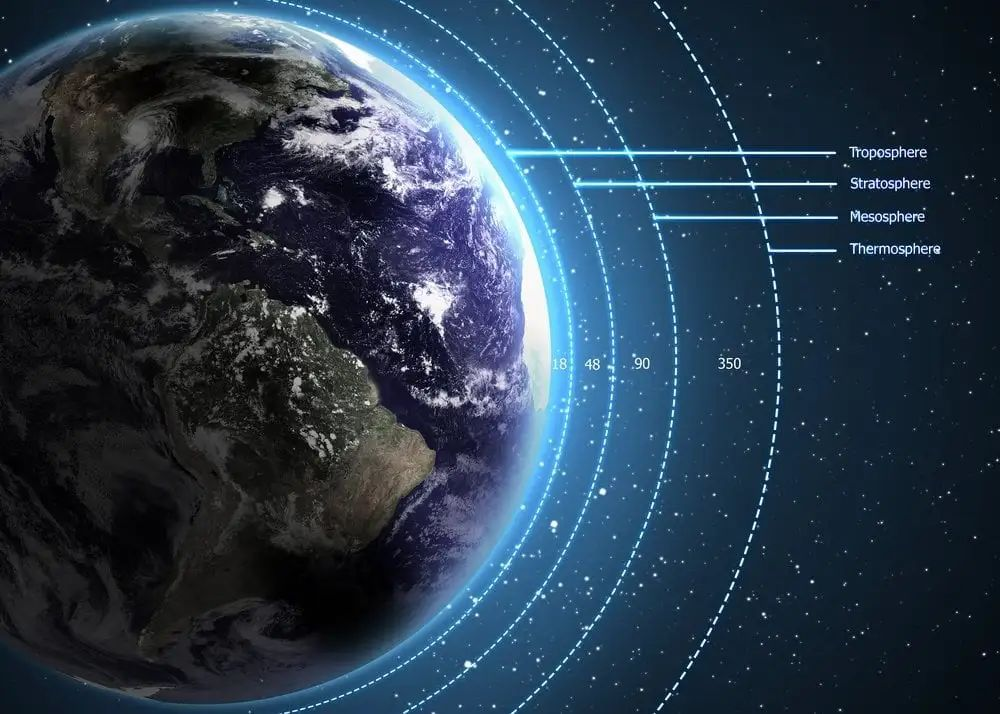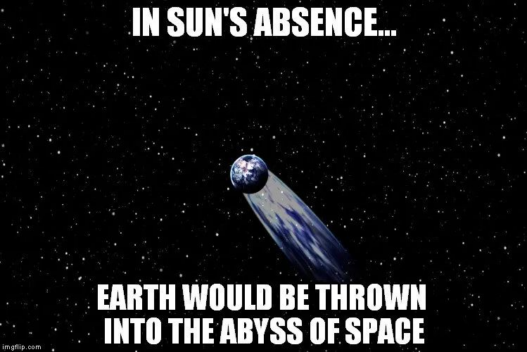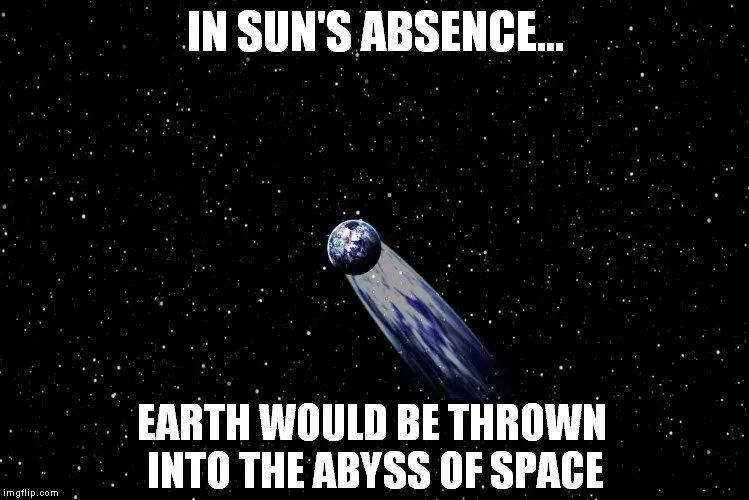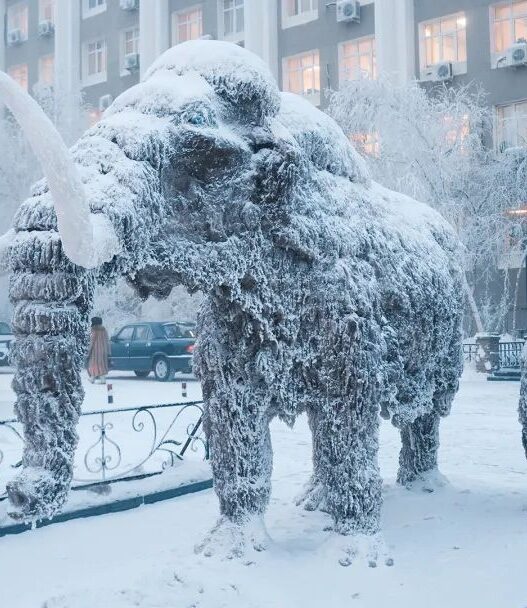We’ve become so accustomed to our environment—air, gases, water, sunlight, even dust—that we almost take it for granted. Our common thoughts might be, “Where else could oxygen be if not on Earth?” or “How could the Sun stop shining on Earth?” But, for a moment, let’s ask: what if the Sun suddenly… vanished? Just like that—gone. What would happen to the comets, moons, planets, and other celestial bodies in our solar system? More importantly, how would we fare from our perspective?
The Importance of the Sun
The Sun is a massive star at the center of our solar system. It’s a gigantic ball of fire, continuously burning due to the elements it’s made from, and it’s the most crucial energy source for life on Earth. Not only Earth, but all celestial bodies in our solar system are locked in elliptical orbits around the Sun. In other words, the Sun is the supreme force that maintains the stability and order of the entire solar system.
The Situation Without the Sun
As previously mentioned, planets and other celestial bodies orbit the Sun in elliptical paths. More precisely, all the planets are constantly falling toward the Sun. So, if the Sun were to mysteriously disappear from our solar system, every planet would continue its forward motion and eventually escape the boundaries of the solar system. Imagine this: Earth is moving at an astonishing speed of 67,000 miles per hour (107,826.05 kilometers per hour) around the Sun. If it suddenly lost the Sun’s gravitational pull, Earth would continue its motion, flying off its orbit at that same speed!
Earth’s Condition Without the Sun

What happens to life on Earth in this scenario? First of all, the Earth wouldn’t immediately plunge into darkness. Light from the Sun takes about 8 minutes to reach Earth, so there would still be some sunlight before complete darkness settles in. Of course, artificial lighting would still work, and the stars would continue to shine. If you happen to be on the side of Earth facing the night, the Moon would also go dark, as it can no longer reflect sunlight.
Moreover, Earth is quite good at retaining heat, so temperatures wouldn’t immediately plummet to extreme levels. However, this doesn’t mean we’d remain warm for long. Within a few days, Earth’s temperature would drop to below freezing. After a few weeks, it would approach absolute zero. If you’re someone who fears the cold, this would be an incredibly harsh experience. The atmosphere would freeze and fall to the surface, leaving us exposed to the harmful radiation from space.
In this frozen, airless world, life would become extremely difficult. Most living organisms would perish, except those creatures living underground and depending on the Earth’s core heat. As for humans, we would need to huddle together, relying on energy from nuclear fusion reactors while finding ways to survive without the Sun.
In other words, life on Earth wouldn’t end immediately if the Sun disappeared… but it wouldn’t last much longer either!



















